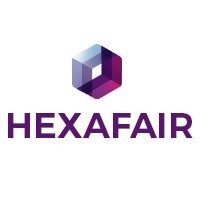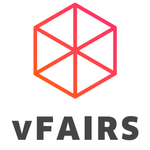What Are The Recent Trends In Virtual Career Fair Platform?
The market for virtual career fair platforms has grown considerably in recent years, owing to technological developments and an increase in demand for distant job opportunities. As a buyer considering investing in a virtual career fair platform, you should stay current on industry developments.
Let's explore, the most recent trends in virtual career fair platforms to help you make an informed decision.
1. AI-Powered Matchmaking: One of the most significant trends in virtual career fairs is the use of artificial intelligence (AI) to link candidates and employers. This enables a more efficient and precise matching of job applicants with suitable job openings, boosting the likelihood of successful hires.
2. 3D Virtual Environments: Many virtual career fair platforms now include 3D virtual environments that simulate the experience of in-person career fairs. This results in a more dynamic and immersive experience for both job seekers and companies, making it simpler to engage and stand out at a crowded virtual event.
3. Virtual Networking Opportunities: Networking is an important feature of career fairs, and virtual platforms have devised ways to assist it in their events. The availability of virtual chat rooms, video conferencing, and other networking tools has made it easier for job searchers to communicate with possible employers and establish professional ties.
4. Mobile Capabilities: As the use of mobile devices has grown, virtual career fair platforms have responded by providing mobile-friendly versions of their platforms. This allows job searchers to attend career fairs on the go, making them more convenient and accessible for individuals with hectic schedules.
5. Customisation Choices: Another trend among virtual career fair platforms is the availability of customisation options. Employers may now personalise their virtual booths to match their brand and provide prospects with a unique experience. This adds a personal touch and allows employers to stand out among a sea of similar booths.
6. Virtual Interview Capabilities: Many virtual career fair platforms now include built-in virtual interview capabilities, removing the need for third-party video conferencing software. This streamlines the hiring process and enables firms to conduct interviews with candidates from all around the world.
Benefits Of Using Virtual Career Fair Platform
A Virtual Career Fair Platform is an effective tool for connecting job seekers with companies in a virtual context. As virtual career fairs gain popularity, buyers must grasp the benefits of using a virtual career fair platform.
Here are the main advantages of investing in a virtual career fair platform.
1. Greater Reach: Virtual career fairs have no geographical limits, allowing businesses to reach a bigger audience. Employers can use a virtual career fair platform to interact with job seekers from all around the world, broadening their talent pool and increasing their chances of finding the appropriate candidate for their available positions.
2. Cost-Effective: Traditional career fairs can be costly, forcing companies to cover additional expenses such as travel, lodging, and booth setup. Employers can avoid these fees by using a virtual career fair platform to display their organisation and job openings in a professional and engaging manner.
3. Time-Saving: Virtual career fairs save more time than traditional fairs. Employers can connect with numerous job searchers at once, saving time on one-on-one discussions. Furthermore, a virtual career fair platform allows job searchers to upload their resumes and apply for jobs online, saving companies time and effort throughout the recruiting process.
4. Enhanced Branding: Virtual career fair platforms include numerous customisation possibilities, allowing companies to personalise the platform to their own branding requirements. This offers employers a unique opportunity to display their brand, culture, and values to potential candidates, allowing them to stand out in a competitive job market.
5. Interactive Features: Virtual career fair platforms include live chat, webinars, and live video interviews, giving attendees a similar experience to a traditional career fair. These features not only engage job seekers, but also allow employers to evaluate individuals' abilities and qualifications for the position in real time.
6. Easy Data Administration: A virtual career fair platform makes data administration easier for firms. Because all of the data from the fair is maintained in one location, employers can simply track and analyze the performance of their job listings as well as the fair's overall success. This information can also be utilized to inform future hiring plans.
Important Factors To Consider While Purchasing Virtual Career Fair Platform?
When it comes to purchasing a virtual career fair platform, there are a few key considerations. These platforms have grown in popularity in today's digital age, offering businesses and job seekers an effective and simple way to connect. However, not all virtual career fair platforms are the same.
To ensure that you make the best decision for your organisation, keep these points in mind.
1. User-Friendly Interface: When purchasing a virtual career fair platform, the user interface should be the first thing you evaluate. It should be clear, intuitive, and easy to use for both businesses and job searchers. A cluttered or confusing interface may cause dissatisfaction and disengagement among participants, eventually negating the aim of the virtual career fair.
2. Customisation Options: Every organisation has different demands and preferences, thus it's critical to select a virtual career fair platform that allows for customisation. This includes the opportunity to brand the platform with your organization's logo and colours, as well as customise the features and functionalities to meet your specific needs.
3. Virtual Networking Features: One of the primary advantages of a virtual career fair is the chance to network and engage with job seekers or potential employers without regard for physical location. Choose a platform that includes virtual networking services like live chat, video conferencing, and one-on-one messaging. These features will improve the experience for both parties and facilitate more meaningful conversations.
4. Accessibility And Compatibility: In today's global marketplace, it is critical to examine the accessibility and compatibility of the virtual career fair platform you use. Make sure it works on a variety of devices and operating systems, and that it provides subtitling or translation options for a wide audience.
5. Security And Privacy Measures: When dealing with sensitive information like job applications and personal data, security and privacy should be prioritised. Choose a virtual career fair platform that includes strong security measures such as encryption, firewalls, and data protection protocols.
6. Scalability: As your company expands, so will your virtual career fair requirements. It is critical to select a scalable platform that can handle a rising number of players and features. This will save you time and money in the long term because you will not have to upgrade to a new platform as your demands change.
What Are The Key Features To Look For In Virtual Career Fair Platform?
When investing in a virtual career fair platform, you must carefully examine the crucial aspects that will ensure your experience is successful and efficient. A virtual career fair platform is a web-based solution for organizing virtual job fairs and connecting companies and job seekers in real time.
The following are the important qualities to look for in a virtual career fair platform:
1. User-Friendly Interface: The first and most important aspect to consider is the user-friendly interface. The platform should be simple to use and require little training from both companies and job seekers. Look for features like a smooth registration process, an easy-to-use interface, and customizable branding options.
2. Real-Time Communication: A virtual career fair platform should include elements that allow for real-time communication between businesses and job seekers. This features text, voice, and video chat capabilities, as well as the ability to plan and perform interviews directly through the site. This will save time and improve efficiency for both parties.
3. Customizable Booths: The platform should provide employers with customizable booths to display their corporate culture, job openings, and other essential information. This will help firms differentiate themselves and make their brands more appealing to potential applicants.
4. ATS Connection: A virtual career fair platform must include Applicant Tracking System (ATS) connection. This enables firms to simply enter and track candidate data, making the hiring process more organized and streamlined.
5. Analytics And Reporting: Look for a platform that has analytics and reporting tools to measure metrics like attendance, conversations, and conversions. This will allow companies and job seekers to evaluate their performance and make informed decisions about future events.
6. Mobile Compatibility: In today's fast-paced world, it is critical to have a platform that is accessible via mobile devices. This will allow job seekers to engage in the career fair at any time and from any location.
7. Technical Support: Finally, technical support is an important factor to consider. The platform should provide 24-hour customer assistance to address any technical issues or questions that may emerge during the event.
Which Industries Can Benefit The Most From Virtual Career Fair Platform?
Virtual career fair platforms have transformed the recruitment process by enabling job seekers and businesses to meet and interact in a virtual environment. This unique technology has shown to be extremely advantageous in a variety of businesses, improving hiring efficiency, cost-effectiveness, and convenience. So, whether you're a company trying to hire top talent or a job seeker looking for your dream job, a virtual career fair platform can be the ideal option.
Let's take a closer look at which industries will profit the most from this cutting-edge technology.
1. The Information Technology (IT) Industry: The IT business is continually evolving, creating a significant demand for technical talent. This industry is primarily reliant on internet communication and distant work, making it ideal for virtual career fairs. IT organizations can use a virtual career fair platform to access a larger pool of candidates from various geographic locations, saving time and resources. These platforms also include capabilities like chat rooms, video conferencing, and virtual presentations, which are great for showing technical talents and conducting interviews with prospects.
2. Healthcare Industry: The healthcare business is experiencing a shortage of experienced personnel, resulting in a highly competitive job market. Virtual employment fairs are a handy and cost-effective way for healthcare organizations to engage with prospective applicants. These platforms enable them to promote their business culture, communicate job openings, and conduct interviews virtually. Job seekers can also attend these fairs from the comfort of their own homes, making it easier to research and apply for numerous job openings.
3. The Finance And Banking Industry: The finance and banking industries require highly qualified and talented individuals. However, the standard hiring process can be time-consuming and costly for businesses in this industry. Virtual career fair platforms are an effective approach to engage with a wide range of prospects, including new graduates and seasoned professionals. Employers can utilize tools such as online resume reviews, virtual examinations, and chat rooms to evaluate prospects and make speedy hiring decisions.
4. Educational Sector: The education sector has also adopted virtual employment fairs as a means of broadening its reach and recruiting top personnel. These platforms enable universities and institutions to communicate with prospective employees, including recent graduates, alumni, and experienced professionals. Virtual career fairs allow educational institutions to present their programs, campus culture, and job possibilities to a larger audience. They can also conduct virtual interviews and provide career advice to students and graduates.
5. Retail And Hospitality Industry: The retail and hotel industries frequently have substantial staff turnover, making recruitment a continual process. Virtual career fair platforms can assist these industries streamline their hiring processes by providing a virtual environment in which to interact with a varied pool of candidates. Employers can use video conferencing and online assessments to evaluate candidates' communication, customer service, and problem-solving abilities, all of which are required in these fields.
Conclusion
To summaries, the correct virtual career fair platform may be a useful asset for any organization trying to boost its recruitment efforts. You may select the finest platform for your individual demands and budget by carefully considering its essential features, functionality, and cost. First, organizations should identify their specific goals and priorities the features that support those aims.
This could incorporate video conferencing, chat features, and analytics to track applicant participation. It is also critical to evaluate the platform's user-friendly interface and customizable branding options to create a smooth and professional experience for both recruiters and applicants. Second, organizations should carefully analyze the pricing structure to see if it fits within their budget and anticipated consumption.
Some platforms may have several pricing tiers based on the number of events or attendees, while others may charge a flat per-event or per-user fee. Making an informed decision also requires taking into account any additional expenses for add-on features, technical support, and customization. Finally, to ensure a successful adoption and use of the virtual career fair platform, select one that provides solid customer support, training, and resources.
This could include live chat assistance, extensive user guides, as well as platform updates and improvements. By following these principles, businesses may confidently select the best virtual career fair platform for their specific needs, budget, and goals. With this platform in place, organizations can improve their recruitment efforts, enhance candidate engagement, and eventually employ top talent for their company.
















